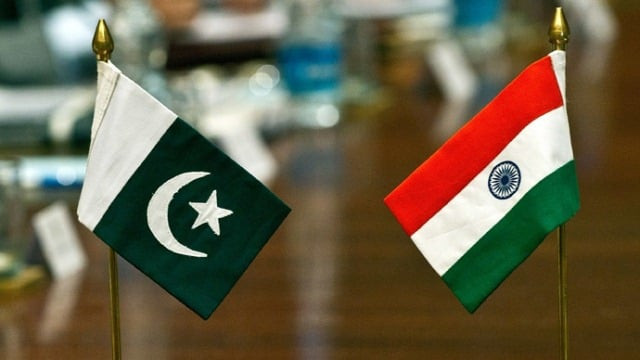Pakistan, India issue diplomatic visas to each other
Moves comes after a gap of 28 months

Islamabad and New Delhi have issued assignment visas to each other's diplomats after a gap of around 28 months as both sides are trying to nomalise ties that have been on ice since 2019 when a suicide bombing of a military convoy in Indian illegally Occupied Jammu and Kashmir (IIOJK) led to India sending warplanes to Pakistan.
Later that year, Indian Prime Minister Narendra Modi withdrew IIOJK’s semi-autonomous status to tighten his grip over the territory, provoking outrage in Pakistan and the downgrading of diplomatic ties and suspension of bilateral trade.
Pakistan and India have issued a large number of assignment visas to each other's diplomatic staff in recent weeks.
Both countries have issued visas on all applications submitted by March 15 this year.
Pakistan issued visas to 33 Indian officials, while seven Pakistani diplomats received assignment visas from India.
Also read: Changing IOK status was Modi's endgame all along: analysts
Sources said there was a possibility of an agreement between Pakistan and India to issue visas on assignment applications by June 15.
The two countries are likely to issue more visas to each other's diplomats after that.
It should be noted that countries around the world issue assignment visas to diplomats and embassy staff from other countries.
In January this year, top intelligence officers from the two countries held secret talks in Dubai, reopening a back channel of diplomacy aimed at a modest roadmap to normalising ties over the next several months.
Later in February, the two countries’ militaries announced an unexpected joint ceasefire.
The UAE’s envoy to Washington confirmed in April that the Gulf state was mediating between India and Pakistan to help the nuclear-armed rivals reach a "healthy and functional" relationship.
Ambassador Yousef Al Otaiba said in a virtual discussion with Stanford University's Hoover Institution that the UAE had played a role "in bringing Kashmir escalation down and created a ceasefire, hopefully ultimately leading to restoring diplomats and getting the relationship back to a healthy level”.
"They might not sort of become best friends but at least we want to get it to a level where it's functional, where it's operational, where they are speaking to each other," he added.
Also read: UAE is mediating between India and Pakistan, says senior diplomat
In March this year, Chief of Amy Staff Gen Qamar Javed Bajwa called on India and Pakistan to “bury the past” and move towards cooperation.
However, he stressed that the burden was on India to create a “conducive environment” and said the US had a role to play in ending regional conflicts.
In June, Prime Minister Imran Khan had said once the Kashmir issue was resolved, there would no longer be any need for nuclear deterrence.
"The moment there is a settlement on Kashmir, I believe Pakistan and India will live as civilised neighbours without nuclear deterrence," he said in an interview with Jonathan Swan of “Axios on HBO”.
PM Imran said the Kashmir dispute, which holds the 1.4 billion people of South Asia hostage, could be settled if the US showed a 'resolve and will'.
“This festering [dispute] can ease if the US has the resolve and will. This can be sorted out.”
(With input from agencies)



















COMMENTS
Comments are moderated and generally will be posted if they are on-topic and not abusive.
For more information, please see our Comments FAQ